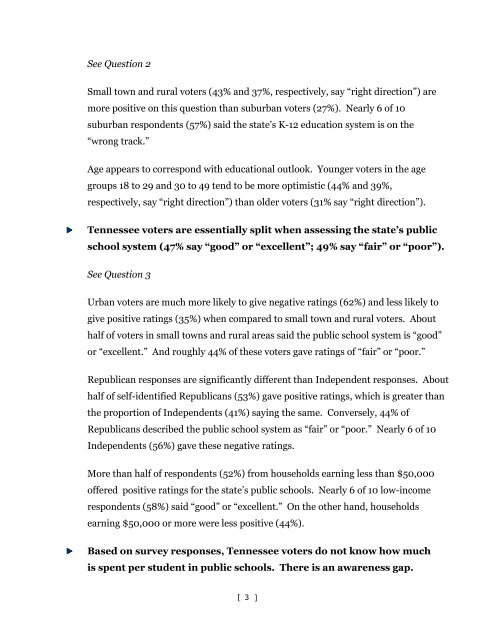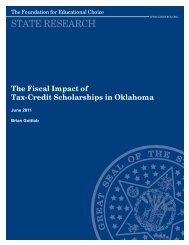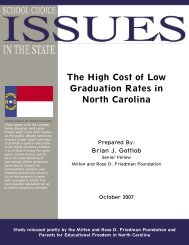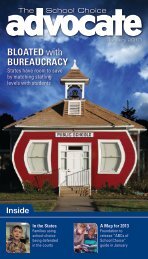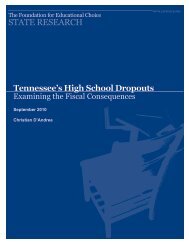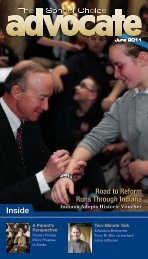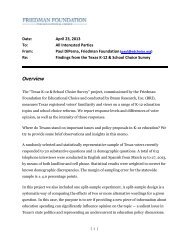Survey Memo - The Friedman Foundation For Educational Choice
Survey Memo - The Friedman Foundation For Educational Choice
Survey Memo - The Friedman Foundation For Educational Choice
You also want an ePaper? Increase the reach of your titles
YUMPU automatically turns print PDFs into web optimized ePapers that Google loves.
See Question 2<br />
Small town and rural voters (43% and 37%, respectively, say “right direction”) are<br />
more positive on this question than suburban voters (27%). Nearly 6 of 10<br />
suburban respondents (57%) said the state’s K-12 education system is on the<br />
“wrong track.”<br />
Age appears to correspond with educational outlook. Younger voters in the age<br />
groups 18 to 29 and 30 to 49 tend to be more optimistic (44% and 39%,<br />
respectively, say “right direction”) than older voters (31% say “right direction”).<br />
Tennessee voters are essentially split when assessing the state’s public<br />
school system (47% say “good” or “excellent”; 49% say “fair” or “poor”).<br />
See Question 3<br />
Urban voters are much more likely to give negative ratings (62%) and less likely to<br />
give positive ratings (35%) when compared to small town and rural voters. About<br />
half of voters in small towns and rural areas said the public school system is “good”<br />
or “excellent.” And roughly 44% of these voters gave ratings of “fair” or “poor.”<br />
Republican responses are significantly different than Independent responses. About<br />
half of self-identified Republicans (53%) gave positive ratings, which is greater than<br />
the proportion of Independents (41%) saying the same. Conversely, 44% of<br />
Republicans described the public school system as “fair” or “poor.” Nearly 6 of 10<br />
Independents (56%) gave these negative ratings.<br />
More than half of respondents (52%) from households earning less than $50,000<br />
offered positive ratings for the state’s public schools. Nearly 6 of 10 low-income<br />
respondents (58%) said “good” or “excellent.” On the other hand, households<br />
earning $50,000 or more were less positive (44%).<br />
Based on survey responses, Tennessee voters do not know how much<br />
is spent per student in public schools. <strong>The</strong>re is an awareness gap.<br />
[ 3 ]


